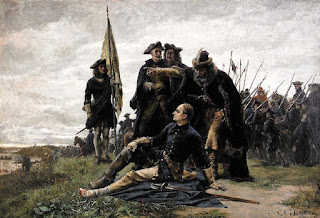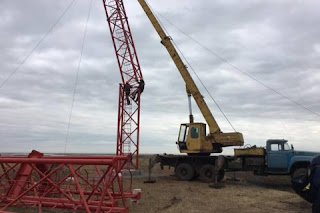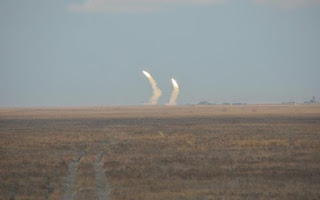Friday, December 30, 2016
President Poroshenko: Knowledge of foreign language opens new world for Ukrainians
Posted by Oleg Bezverkhnii at 23:55 0 comments
Ukrainian Navy will be reinforced with three new «Kentavr» fast assault crafts
- 12.7 mm machine gun
- 40 mm grenade launcher (NATO standard)
Posted by Oleg Bezverkhnii at 00:38 0 comments
Wednesday, December 28, 2016
Ukraine's main Christmas tree lit up in Kyiv
Read more on UNIAN: http://www.unian.info/kiev/1687852-ukraines-main-christmas-tree-lit-up-in-kyiv-photos.html
Posted by Oleg Bezverkhnii at 23:31 0 comments
Monday, December 26, 2016
Russia plane crash: Huge search for bodies in Black Sea
Emergency officials said initial information suggested the fuselage was located 27m (89ft) below the surface and 1.7km (one mile) from the shore in the direction of the runway. So far only 11 bodies and 154 body parts have been recovered, but officials believe many more may be trapped inside the remains of the aircraft. Search teams worked through the night in three shifts, and the operation "did not stop for a minute", defence ministry spokesman Maj Gen Igor Konashenkov said at a briefing on Monday.
- The backbone of Soviet and Russian airlines for decades
- Three engines, narrow-bodied and medium range
- Designed in the mid-60s, came into service in 1972 and was modernised in 1986 with new engines and equipment
- Has seen 39 fatal accidents, although few were due to technical problems. Many were as a result of difficult weather conditions and poor air traffic control. A few were lost in conflicts including in Lebanon, Georgia and Afghanistan
- Not
used in Russia's civil aviation since 2009, but is still used by the
military. Only about 50 in service worldwide
Posted by Oleg Bezverkhnii at 17:41 0 comments
Sunday, December 25, 2016
Radical Ukrainian politician Oleg Lyashko wants nuclear weapons
Posted by Oleg Bezverkhnii at 11:32 0 comments
Thursday, December 22, 2016
Ukraine adopts austerity budget along IMF lines
Posted by Oleg Bezverkhnii at 07:42 0 comments
Monday, December 19, 2016
Posted by Oleg Bezverkhnii at 23:47 0 comments
Sunday, December 18, 2016
US troops to arrive in Europe in January to reassure allies
Posted by Oleg Bezverkhnii at 20:46 0 comments
Saturday, December 17, 2016
Scaparrotti surveys Ukraine's front lines against Russia
Posted by Oleg Bezverkhnii at 21:20 0 comments
Wednesday, December 14, 2016
Amsterdam court rules to return 'Scythian gold' to Ukraine
Posted by Oleg Bezverkhnii at 18:48 0 comments
Ukrainian Hetman whom name was immortalized all over the world.
Posted by Oleg Bezverkhnii at 07:49 0 comments
Monday, December 12, 2016
KRAZ of Ukraine launches new military tank track based on KRAZ-5233BE chassis
Posted by Oleg Bezverkhnii at 19:01 0 comments
Sunday, December 11, 2016
Corruption allegations and unwillingness to change taint Ukraine military – BBC
Posted by Oleg Bezverkhnii at 15:20 0 comments
Saturday, December 10, 2016
Visa-free soon?
Posted by Oleg Bezverkhnii at 03:02 0 comments
Friday, December 9, 2016
U.S. Congress boosts security assistance to Ukraine to US$350 million
Posted by Oleg Bezverkhnii at 07:44 0 comments
Tuesday, December 6, 2016
Ukraine celebrating Day of Armed Forces
Posted by Oleg Bezverkhnii at 16:02 0 comments
Monday, December 5, 2016
TV tower construction started in Kherson region to broadcast Ukrainian channels to Crimean peninsula
Posted by Oleg Bezverkhnii at 21:27 0 comments
Friday, December 2, 2016
Chornobyl’s giant New Safe Confinement has taken its place
The structure was built by Novarka, a consortium of the French construction firms VINCI Construction and Bouygues Construction. Works started in 2010. With a cost of €1.5 billion the giant structure is the most prominent element of the Shelter Implementation Plan for Chornobyl, which involved more than 300 projects and activities. The €2.1 billion programme is financed by the Chornobyl Shelter Fund. The EBRD manages the Fund and is the largest contributor to the New Safe Confinement project.
Posted by Oleg Bezverkhnii at 22:28 0 comments
Russia deploys warships near Crimea as Ukraine fires missiles in air defence drill
Posted by Oleg Bezverkhnii at 07:45 0 comments
Wednesday, November 30, 2016
The living exhibit of the Poltava Battle Museum
Posted by Oleg Bezverkhnii at 20:24 0 comments
Norway welcomes US Marines amid Russian tensions
Tensions about Russia's posture in Europe have increased following the Russian annexation of Crimea in 2014, following Putin's intervention in eastern Ukraine.The US and its NATO allies have since increased their presence, as well as assistance to Poland and the countries on the Baltic Sea. Earlier this year, members of the 2nd Marine Expeditionary Brigade trained in Norway alongside troops from other NATO countries in Exercise Cold.
Posted by Oleg Bezverkhnii at 17:42 0 comments
Friday, November 25, 2016
Kyiv court reschedules Yanukovych's skype-questioning for Nov 28
Posted by Oleg Bezverkhnii at 16:07 0 comments
Tuesday, November 22, 2016
Sweden is fed up with Russia...
Posted by Oleg Bezverkhnii at 20:57 0 comments
Posted by Oleg Bezverkhnii at 10:46 0 comments
Monday, November 21, 2016
Trump names pro-Ukraine CIA Director
Posted by Oleg Bezverkhnii at 10:51 0 comments
Thursday, November 17, 2016
President Poroshenko visited State Archive of Sweden where Latin version of Pylyp Orlyk’s Constitution is stored
Posted by Oleg Bezverkhnii at 18:20 0 comments
Wednesday, November 16, 2016
Enormous containment arch finally moving into place over exploded Chernobyl reactor
Posted by Oleg Bezverkhnii at 17:08 0 comments
Saturday, November 12, 2016
United States to continue increasing their presence in Europe
Posted by Oleg Bezverkhnii at 02:03 0 comments
Tuesday, November 8, 2016
What scientists have discovered in the Chernobyl forest, shocked the whole world!
Posted by Oleg Bezverkhnii at 23:51 0 comments
Friday, November 4, 2016
Russia may be wounded, but it can still bite
Posted by Oleg Bezverkhnii at 18:54 0 comments
Tuesday, November 1, 2016
Ukraine stunned as vast cash reserves of political elite are made public
Posted by Oleg Bezverkhnii at 19:22 0 comments
‘Increasingly aggressive’ Russia a growing threat to UK, says MI5 head
Posted by Oleg Bezverkhnii at 08:24 0 comments
Saturday, October 29, 2016
World War 3 Balance:Britain the latest NATO nation to bolster Baltic states against Russian threat
Posted by Oleg Bezverkhnii at 22:03 0 comments
Russian airforce in training exercises on possible air strikes on Ukraine targets
Posted by Oleg Bezverkhnii at 07:50 0 comments


































